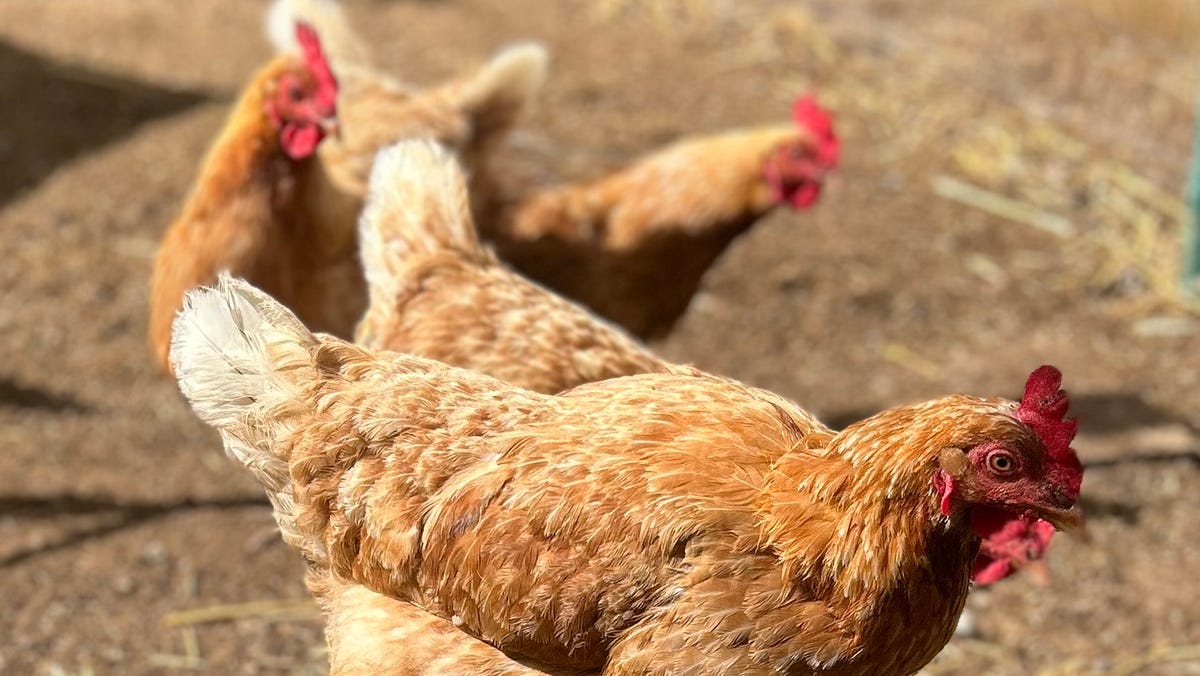Oregon Faces Outbreak of Highly Pathogenic Avian Influenza
Oregon’s Bird Flu Crisis: What You Need to Know
Oregon is making headlines for all the wrong reasons these days. The state is facing an outbreak of highly pathogenic avian influenza (HPAI), a strain that can have devastating effects on local bird populations and even spill over to human health in some rare cases. But what does this mean for Oregonians? Should you be worried, or is this just another wildlife issue we can quietly ignore? Let’s dive into the nitty-gritty of this outbreak, understand its implications, and figure out what we can do about it.
What is Avian Influenza?
Avian influenza, or bird flu as most people know it, is a viral infection that primarily affects birds. However, it can also infect humans and other animals. There are many strains of this virus, but highly pathogenic avian influenza is considered the most dangerous. Think of it as the “bad news bears” of bird flu strains that can cause severe illness or death in birds, and in some rare cases, humans.
How Does It Spread?
This strain spreads quickly among birds, typically through:
- Direct contact: When healthy birds come in contact with infected droppings, secretions, or surfaces contaminated with the virus.
- Indirect contact: This includes contaminated equipment, vehicles, or even clothing. It spreads much like a common cold, but way faster!
Transmission to Humans
While the chances remain low, it is possible for humans to contract avian influenza, especially if they come into close contact with infected birds or contaminated surfaces. Health authorities are always on high alert during such outbreaks to ensure public safety.
The Situation in Oregon
Recently, Oregon has been engrossed in battling an outbreak of HPAI. The state’s wildlife agency has reported multiple cases affecting backyard poultry and wild bird populations. So just how serious is this situation? Well, let’s break it down.
Impact on Poultry Farmers
The first and most immediate impact is on the local poultry farmers.
-
Quarantine Measures: Farms are often placed under stringent quarantine measures to prevent the virus from spreading.
-
Financial Losses: Many farmers are facing loss of income due to flock culling, a tactic employed to contain outbreaks. It’s like losing your entire business overnight.
-
Public Panic: As news breaks about the outbreak, consumers may start shying away from poultry products, fearing for their health. It’s a domino effect that jeopardizes livelihoods.
Risks to Wild Birds
Wild birds are the natural reservoir for many strains of influenza, making them susceptible to new infections. Oregon, with its rich avian diversity, finds itself at a crossroads.
-
Population Declines: As infected wild birds become sick or die, entire species could see drastic population declines.
-
Ecological Balance: With fewer birds, the ecological balance can be disturbed, affecting predator-prey relationships and the health of local ecosystems.
What Are the Symptoms of HPAI?
For those that may come into contact with infected birds, recognizing the symptoms can be crucial. Here are some signs to look out for:
-
In Birds:
- Sudden death without prior symptoms
- Swelling of the head, neck, and eyes
- Nervous signs like tremors or a sudden lack of coordination
- Reduced egg production or poor egg quality
-
In Humans:
- Fever and cough
- Sore throat and muscle aches
- Shortness of breath or respiratory distress
If you witness any of these symptoms in your birds, it’s advisable to contact the appropriate authorities without delay.
What Should You Do If You Own Birds?
If you’re a backyard bird owner or a commercial farmer, you’re probably feeling anxious. Here are some practical steps you can take:
-
Isolation: Keep your birds isolated from wild birds and minimize contact with other domestic flocks.
-
Hygiene Measures: Ensure all feed and water supplies are from clean sources, and regularly sanitize equipment. Think of it as an extra layer of defense!
-
Reporting Symptoms: If you notice any unusual behavior or symptoms in your flock, report it to your local wildlife agency immediately.
What About Consumers?
So, you don’t own birds, but you’re still feeling the ripple effects of this outbreak. What can you do to stay safe and informed?
-
Stay Informed: Keep an eye on local news and updates from health and wildlife agencies. Knowledge is power!
-
Avoid Panic Buying: The chicken aisle may be feeling a bit bare, but remember that cooking and handling poultry properly can eliminate risks.
-
Focus on Safety: Always wash your hands after handling any kind of meat. Remember, it’s not just about poultry; food safety applies to all foods!
The Role of Health Authorities
When an outbreak occurs, health authorities in Oregon ramp up efforts to monitor, control, and contain the situation. Here’s how they’re working tirelessly behind the scenes:
-
Surveillance Programs: Constant monitoring of both domestic and wild bird populations helps in early detection of HPAI.
-
Public Awareness Campaigns: Health departments are also educating the public on how to stay safe and identify symptoms.
-
Research & Development: Ongoing research into vaccines and treatments is crucial for both birds and potential human cases, ensuring we’re armed with the best possible tools against this virus.
Looking Ahead
As Oregon grapples with this serious outbreak, it’s crucial to stay informed and proactive. Will this outbreak pass like a summer storm, or are we in for a drenching that might leave some long-lasting effects? Only time will tell. Authorities continue working to contain the situation, but community awareness is equally crucial.
Conclusion
So here we are at the end of our exploration into Oregon’s current battle with HPAI. While it’s essential to remain vigilant, we should also remember that the situation evolves. With continued monitoring, public awareness, and responsible handling practices, we can mitigate the risks associated with bird flu. The key is staying informed and taking appropriate precautions.
FAQs
1. Is avian influenza contagious to humans?
Yes, while the risk remains low, avian influenza can infect humans, especially if they come into close contact with infected birds.
2. How can I protect my backyard birds?
Isolate them from wild birds, maintain strict hygiene practices, and report unusual symptoms to local authorities.
3. What should I do if I find dead birds?
Report any dead birds to wildlife authorities, especially if you suspect avian influenza.
4. Are poultry products safe to eat during this outbreak?
Yes, properly cooked poultry products are safe to eat, but maintain good hygiene while handling them.
5. How can I stay updated on this situation?
Follow local news outlets, state agriculture department notices, and updates on health agency websites for real-time information.







